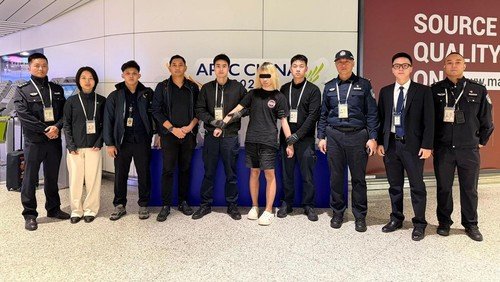
A viral social media movement, #KaburAjaDulu (“Just Escape First”) has recently trended across Indonesian social media, highlighting the frustrations of young Indonesians who see better opportunities abroad.
The hashtag, trending nationally on X and TikTok, became a discussion thread for Indonesian youth to voice their desire to migrate, citing economic concerns and political uncertainty.
Many also link the trend to dissatisfaction Indonesia’s education system, which demands citizens to invest large sums of money only to find limited job opportunities and low monthly wages.
What Indonesians Are Expressing
“People used to question our nationalism due to our decision to leave Indonesia,” an Indonesian worker who now works in Japan said in a #KaburAjaDulu video.
“Behind our decisions to leave Indonesia are families who need their socioeconomic dignity defended, pregnant wives at home who need to receive financial support, and children who need their education and healthcare afforded,” he said.
“We leave the country to ensure our family’s prosperity, precisely because [the government] has failed to ensure our family’s prosperity in Indonesia.”
@ikamm.rs #kaburajadulu ♬ thats so true bridge – charlotte⸆⸉
@dieranathania Tidak ada yang tahu masa depan kita itu seperti apa. Mungkin lebih sukses di LN? Mungkin juga lebih sukses di Indonesia? Tapi yang pasti, kita tidak bisa sukses kalau tidak berusaha. #kaburajadulu #fyp #jepang ♬ BGM perfect for item description – Mi-on(みおん)
Indonesian TikTokers share snippets of their experiences abroad under the #KaburAjaDulu hashtag.
The hashtag has also become a channel for Indonesians to share job and scholarship opportunities overseas, language courses, as well as career and life testimonies from Indonesians abroad.
Yoel Sumitro, an Indonesian based in Germany, used the hashtag to share insights into high-paying job markets and visa-friendly countries, recommending destinations such as Singapore, Amsterdam, Tokyo, Berlin, and Dubai for tech workers.
“Many people ask me how to work abroad,” said Sumitro, a Solo native who has worked in Germany, Singapore, and the U.S. since 2011. He noted that while Indonesia offers comfort through family ties, his career growth stagnated after four years of working in the country.
“If I wanted to advance, I had to go abroad. I wanted to experience being an executive in a multinational team.”
Government Response and Migration Realities
In response to the trend, Minister of Migrant Worker Protection Abdul Kadir Karding acknowledged the movement and emphasized the need for structured migration.
“If you want to leave, make sure it’s for work. Rather than leaving aimlessly, we will help prepare you,” he said at the Senayan parliamentary complex.
Senior researcher Yanuar Nugroho from Singapore’s ISEAS-Yusof Ishak Institute noted that the trend is not new but reflects deeper concerns. He believes the movement is more symbolic than an actual mass exodus.
“They see political, economic, and legal conditions stagnating. But large-scale migration remains challenging because finding jobs abroad is not easy,” he explained. “Many people say, ‘If I had the money, I would leave.’”
Contradictions and Brain Drain Concerns
Despite high approval ratings for President-elect Prabowo Subianto, the sentiment online suggests widespread dissatisfaction.
Primawan Satrio, an Indonesian living in South Korea since 2020, stated he has no plans to return due to government policies, particularly budget cuts in education and research. His wife, a medical researcher, is considering permanent residency abroad.
The trend has also reignited fears of brain drain—a term to refer to the loss of human capital from a country as its residents migrate abroad.
Between 2019 and 2022, for instance, nearly 4,000 Indonesians obtained Singaporean citizenship, many of whom are high-skilled workers in crucial developing sectors in Indonesia.
However, Sumitro, now working in Berlin, also said that migrating residents can still benefit their home countries.
“For instance, India benefits from its diaspora in the U.S. and Europe through remittances and knowledge transfers,” he said.
While #KaburAjaDulu remains an online discourse, Nugroho believes the government must act quickly.
“Prabowo’s administration must deliver on promises—creating jobs and ensuring legal certainty—before more young people lose hope in their future at home,” he concluded.









